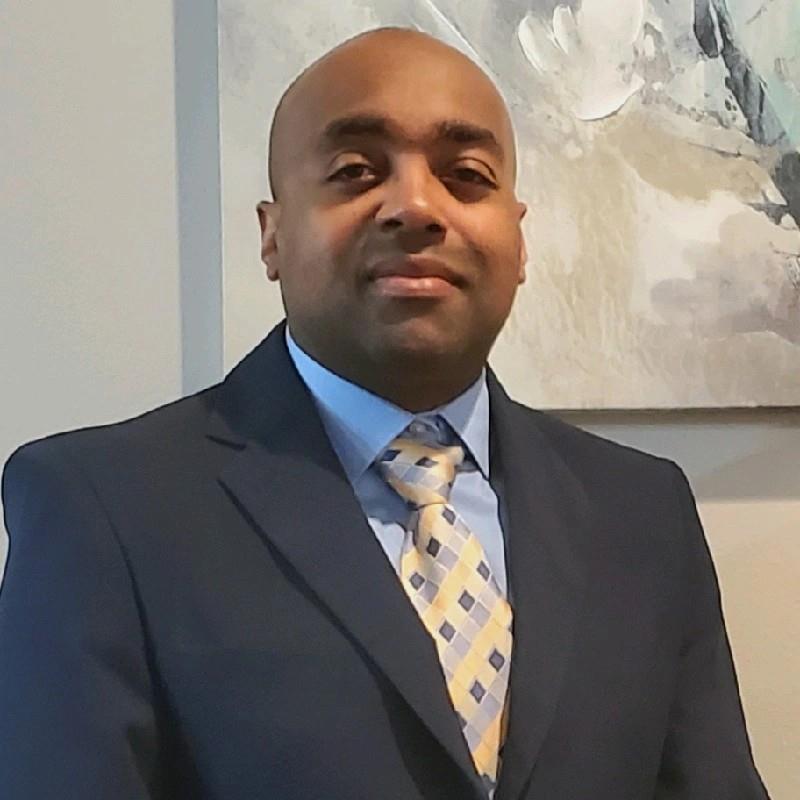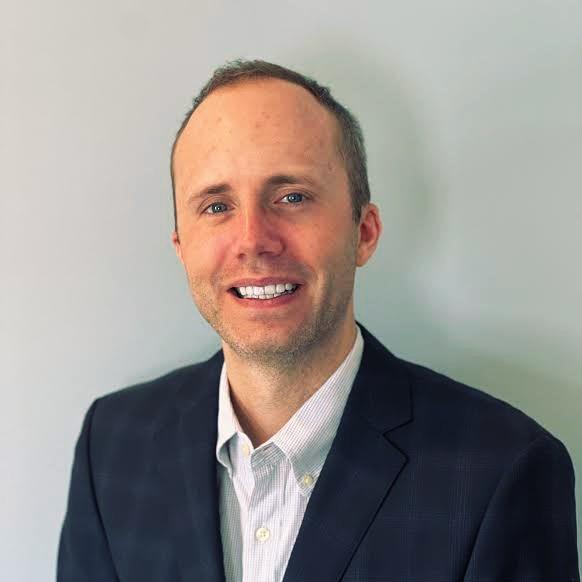Being a Leader in Medical Sales
Todd Crowder, a straight-up legend in the medical sales world, joins us to unpack what it really takes to rise, lead, and dominate in this competitive industry. Known for building high-performing teams and transforming reps into power players, Todd brings unfiltered insight into the mindset and skill set that separate top performers from the pack.
We dive into why composure under pressure is a rep’s greatest weapon. Todd shares how a proactive, solution-first mindset can make you irreplaceable inside any company. If you’ve been stuck reacting to problems instead of owning the room, this episode will flip that switch.
Medical sales is a results-driven game — and Todd calls out the myths around hours worked, company perks, and what really moves the needle. It’s not about showing up, it’s about showing results. We break down why leadership cares about ROI and how understanding that can instantly change how you’re viewed inside the org.
From there, we go deep on communication. Todd reveals how to adjust your style to match your audience, build trust with any personality type, and use tools like DISC to lead smarter. If you want to close bigger deals and manage better relationships, this is where it starts.
We also introduce a personalized program built to fast-track your growth into executive leadership. Whether you’re just breaking in or ready to lead, Todd lays out what it takes to stand out — and stay there. This isn’t theory. It’s what the best reps in the business actually do.
If you’re serious about making moves in medical sales, this episode is your playbook.
Connect with Todd: LinkedIn
Connect with Me: LinkedIn
Love the show? Subscribe, rate, review, and share! Here’s How »
Want to connect with past guests and access exclusive Q&As? Join our EYS Skool Community today!
Watch the episode here:
Or Listen to it on your favorite platform:
Episode Transcript:
00:05 – Samuel Adeyinka (Host)
Hello and welcome to the Medical Sales Podcast. I’m your host, samuel, founder of a revolutionary medical sales training and mentorship program called the Medical Sales Career Builder, and I’m also host of the Medical Sales Podcast. In this podcast, I interview top medical sales reps and leading medical sales executives across the entire world. It doesn’t matter what medical sales industry from medical device to pharmaceutical, to genetic testing and diagnostic lab you name it. You will learn how to either break into the industry, be a top 10% performer within your role or climb the corporate ladder. Welcome to the Medical Sales Podcast.
00:41
And remember, I am a medical sales expert, sharing my own opinion about this amazing industry and how it can change your life. When there’s a big issue with the leader of my department and they’re like they’re just losing it, and I’m just like I can’t lose it, but I’m I’m feeling their pain. And then somebody else has a problem and I’m feeling their pain. And then I’m over here like dude, this is crazy and I feel like I’ve been forced to come up with ways to just stay at peace, no matter what I hear, no matter how bad or good it actually is. I just got to stay at peace.
01:12
And then what I was talking about with the confidence is not only do I got to, not only am I realizing I got to stay at peace. I have to be confident for my people, because when they’re nervous, when they’re panicking, when they’re emotional, they’re not as effective. It’s just facts they’re not as effective. But when I’m, and then when they come to me and regardless how bad or good or whatever’s going on, and they get this belief that what I’m experiencing can be managed, every problem does have a solution and I can figure this out and I’m competent enough knowing how to stay grounded no matter what is going on, knowing how to just for lack of a better word maintain at all costs I’m going to ask you a question, then I’m a more clear person, I can deal with the marketing issue that I’m having.
02:04 – Todd Crowder (None)
What is your first response to me?
02:07 – Samuel Adeyinka (Host)
Listen to understand. My first response was like what’s the first thing I do internally or what’s the first thing I say to you?
02:15 – Todd Crowder (None)
I come to you and, whatever the last marketing issue you had, what was your first response back to that individual?
02:23 – Samuel Adeyinka (Host)
Yeah, it was.
02:24 – Todd Crowder (None)
Have they solved the problem? No, it was. Have they solved the problem?
02:26 – Samuel Adeyinka (Host)
No, it was.
02:27 – Todd Crowder (None)
Have they worked with you with the problem?
02:29 – Samuel Adeyinka (Host)
No, no, it was. Let’s have a meeting to better understand what the problem actually is. I’ve heard you. This is thank you for sharing this. Put together something that clearly explains what you think the problem is and what you think the pro solution is, and let’s discuss it in a meeting.
02:44 – Todd Crowder (None)
Perfect the problem is and what you think the pro solution is, and let’s discuss it in a meeting. Perfect. Now I’m going to tie that to how those that are listening to this you as a rep, you’re sitting in that alarm. You’re sitting in that pharmaceutical aspect, you’re sitting in that diagnostic. Hear what he just said.
03:04
What is the solution? Let’s come with it. Don’t come with just the problem, right. Come with an ability to have a conversation and what you feel could be a solution, right. Why? Because as a manager of a business, as a manager of a corporation, as a manager as your manager might be, as you’re a young sales rep or younger to the role they have a bunch as you’re hearing Samuel talk you have a bunch of stuff that you’re trying to manage in different avenues. When I was the first regional manager, first line manager, I had reports up, I had marketing, I had education. I had to deal with, if I ever went, that the sky is falling, chicken little and when you guys all slowly run around with other chicken littles, everything begins to fall apart.
03:53
Not worse, we think. The three things I tell everybody show up, shut up and follow. You’ve got to learn that part of that. Shut up it’s not just applicable to when you’re in the award, it’s applicable to when you’re listening to your colleagues have is not just applicable to when you’re in the OR. It’s applicable to when you’re listening to your colleagues have. The sky is falling. Attitude Be the one that can make the difference. Two types of rips assets and assets. This is the part where you become an asset, not only to yourself but to upper management.
04:21
You just heard Samuel talk about this frustration that he’s got to deal with, and so the reason why I said it was easy to tie this back to Samuel when we talked about this would be a great topic is because reps need to understand it’s not just their world that it sits in, and I think, hearing from an upper management standpoint, I’ve got to worry about marketing. I’ve got to worry about education. I’ve got to worry about marketing. I’ve got to worry about education. I’ve got to worry about acquisition. I’ve got to worry about budgets I’ve got to worry about are we paying too much? I’ve got to worry about payroll, I’ve got to worry about all these other things that when you’re sitting there and you come to your manager, you need to be the solution individual and say this is my thoughts.
05:05
This is what I’m seeing. I think we should do it this way. However, I would like to have your input so that I can make the best possible decision, not just for me but for my corporation, that you can trust me with, and that would benefit others, and that would benefit others. So, reps that are out there, that are listening, or people that want to be reps that are out there whether you’re a medical device or whether you caught this thing and it’s somewhere else and you’ve someone given it to you and you see this stop being the chicken little that runs around with its head cut off. Stop being an individual that cannot solve its own problems. And then look at yourself at the end of the year, because your territory, whether you were in it or not, did well and now, all of a sudden, everybody thinks you’re a great rep Newsflash. You’re not. If you can’t solve your own problems or bring problems to management with a solution, you are nothing more than a walmart greeter taking orders sorry to push your bubble.
06:08
We’ve talked about how samuel and I’ve been making this a real and sometimes controversial thing you are nothing more than an order taker, and they might as well send a catalog in your place if you don’t have the ability to solve the problems, to bring it to samuel or bring it to the intermediate person between that person, your manager, and then Samuel. Same applies to you as a rep. You are nothing more than a marketing individual that walks into a hospital that has a big marketing sign with them, whether it’s formula, whether I mean look back in the early 2000s. If you were a Pfizer rep, you didn’t have to be that good of a rep. Sorry if I burst your bubbles. You had Viagra sitting all over the place and doctors writing prescriptions faster than the paper can be printed Doesn’t make you a great rep.
06:57
I would have hired them. They could have been good reps, but they weren’t marketing. We have stopped teaching. When I get new reps, the first thing I tell them is I know how to teach you how to think. You can pass tests, you can look at a hysterectomy, you can look at a colon resection, you can see a gastric bypass and understand it. But can you think and I think we’ve gotten away from reps that are coming out to think Because we’ve taught for so long test and how to do the test.
07:36 – Samuel Adeyinka (Host)
There’s two things on that that I think should also be considered, and it goes back to how to think. One thing that I’ve noticed, and I see this with contractors we hire and not even just contractors, even our W-2 employees. They’ll be assigned a task and they’ll put a lot of hours into this task. Right, whether it be contractor or W-2 employee. A lot of hours, I mean not a ridiculous amount, but just a high number of hours. And whatever they were assigned or given a dominion over to manage and bring to a solution, bring to a conclusion, right, whatever the ROI is for that assignment they will not have reached, but they put in a ton of hours, ton of time, ton of energy.
08:21
And it comes to pay time. Now, I’m not, I’m always going to pay, whoever I contract, but a lot of times the relationship cannot be sustained because they’re like, samuel, I did this and I did that, and I did this and I did that, and, oh my gosh, so many hours. And I listen and I’m patient and I say okay. When they’re done, I say okay, but did we do what you and I agreed needed to be accomplished? Well, sammy, I mean, I did this, I did that, I did this, but you don’t understand. Okay, I hear everything, but did we do what you and I agreed would be accomplished? And when they finally get to know, it makes it very easy to see what happens with the rest of their employment, with the rest of their being contracted for any more time.
09:03
And I bring that up because I think and I’m not guilty of this, but I almost want to say this. I never say this because it’s just not right, but in my mind I’m thinking If people knew how many hours I put into my business, right, if people knew the late nights, the just rigorous going over the same plan over and over and over again to tweak it, to refine it, to get a result, and if I only get a result, you know, 10 cents an hour would be my compensation. Maybe hour would be my compensation. Maybe, and I think everyone is so accustomed to I need to get paid for the time I chose to spend and we’re so far removed from. I need to get paid on what I can bring to the table period.
09:51
What I love about medical sales is at the end of the day, no one cares how much time, how many hours you spend If you cannot make the sale. Guess who no longer has a job and if you cannot make the sale, guess who’s definitely not going to climb the ladder to any other position. But still, it’s something that I don’t know. People don’t embrace enough and maybe, listening to this, they should start to, because I really think it ends and stops there. Nobody cares. What can you create, what can you produce, what can you actually accomplish?
10:26 – Todd Crowder (None)
And that is truly anything everyone cares about come to me and they’d be like oh man, I’ve been working so hard. Okay, great, let’s map out what you did. You started here, you went north 45 minutes here, went over here to drop this and I’d basically kind of draw a star and I would say now, how much money did you earn from doing all that? Right, and they went. Well, my commission no, no, no, no, no, no, no. How much money did you earn? Not with your commission dollars, because hospital X ordered, regardless of whether you showed up or not.
11:05
Again, you’re not a rep at that point. You’re an order taker. Let’s just be clear about who you really are. Take an inventory of yourself. Look at yourself in the mirror. Am I being a rep or am I a marketing individual that takes orders, just like if I was sitting at Burger King? If you’re a star rep and you’re going up north and you’re coming down east and you’re going down south and you’re going all over the place and you look at your thing and your mileage is more than the dollars you earned, you have cost yourself money and you have benefited nobody.
11:38 – Samuel Adeyinka (Host)
Benefited. Nobody Say that again, please.
11:40 – Todd Crowder (None)
Benefited? No one, not yourself, not your manager, not your family, not the corporation. Nothing you represent is done and the reality of it is it goes back to we think, like you said, keyword the hours I put in I should be compensated for. No, the results you do you should be compensated for. And if you think that a company likes to sit there and have you drive all over town and pay you six speakers a year, you are sadly mistaken. You know why Corporations can look at you and speakers a year, you are sadly mistaken. You know why corporations can look at you and go hey, I’ve got 20 people lined up to take your position Because they want to find the person that can bring back the strongest ROI without having to drive all over town.
12:34
All that mileage you report into your company, all the gas cards you might have from your company, all the mileage. If you have a corporate car. Guess what that factors into how they view you as an individual. You’re thinking it’s a great perk. Hey, I got a company car, I get to drive around, I don’t have to pay. Guess what the mileage you turn in, or the mileage they see from the gas card that you’re used. It’s letting them know how good of a rep you really are, yeah, or do you just drive around and they need to? Really you want to know why commissions each company year you have to hear dilutes the commissions because they see the roi that you’re producing is getting less and less right, right.
13:17 – Samuel Adeyinka (Host)
those are the facts, yeah.
13:19 – Todd Crowder (None)
And no one wants to talk about it. I think it’s a great subject to have a conversation because we teach from elementary school, which I have kids in and I have one that teaches in elementary school. As we through that, just work hard, just work hard and you can be able to do it. Just keep working at it. But they don’t talk about if you don’t see the results when you’re working at it your work is in vain and you’re not doing anything for anybody.
13:53
You don’t see Tom Brady going out there when he played sixth-round draft pick. What if I just keep working hard? I just keep throwing the ball? Eventually I’m going to start. No, he had to study, he had to run, he had to get better. He had to lift weights. He had to keep his body in tip-top shape. Lebron James doesn’t play the language he does at age 40.
14:14 – Samuel Adeyinka (Host)
Right, just because he worked hard Right.
14:25 – Todd Crowder (None)
Just age 40. Right, just because you worked hard. Right, just because it was great and I traveled around the country, right, right, it’s no different. They’re elite athletes. You want to be an elite salesperson? Then be a salesperson and not be an order taker. Be a solution individual, because that’s what sales is. Sales is finding the problem, creating an avenue for the individual to see what you bring to that and solving the problem. It is not walking into the OR or into a doctor’s office or sitting behind a computer and sitting there and saying I wonder how my sales went today. I used to do that when I was a young rep. I had a great manager teach me this a long time ago and it was just the reality. We got so used to big market names. They take home it gives me credit to get in the hospital and that’s it. That’s all it gives you Back in the early days when contracts were dominant and didn’t make a difference. That’s what happened when it was the wild west and contracts didn’t matter. I don’t know who your reps were.
15:23 – Samuel Adeyinka (Host)
I hope you’re enjoying today’s episode and I want to let you know our programs cover the entire career of a medical sales professional, from getting into the medical sales industry to training on how to be a top performer in the medical sales industry to masterfully navigating your career to executive level leadership. These programs are personalized and customized for your specific career and background and trained by over 50 experts, including surgeons. Our results speak for ourselves and we’re landing positions for our candidates in less than 120 days in top medical technology companies like Stryker, medtronic, merck, abbott you name it. Would you run an Ironman race without training and a strategy? You wouldn’t. So why are you trying to do the same with a medical sales position? You need training, you need a strategy and you need to visit evolveyourassetscom, fill out the application schedule some time with one of our account executives and let’s get you into the position that you’ve always dreamed of.
16:20
Yeah, no, I think you know from being a kid. We do teach our kids to work hard because work ethic has to be there, but, like you said, we too easily convolute work ethic with results. And to get results, work ethic does have to be there, but work ethic isn’t the only thing. So the question is okay, well then, how do you get results? Work ethic does have to be there, but work ethic isn’t the only thing. So the question is okay, well then, how do you get results? And it really does go back to you know that whole phrase work hard but work smart.
16:51
I even think that overgeneralizes, because to get results you, number one, have to have your work ethic. Then you have to know what your goal is, then you have to know what your goal is, then you have to know what your baseline is. Then you really do have to have a tracking system, a process in place that you can execute each and every day, diligently and consistently to get this hopeful result that you’re trying to achieve. And that has to be over time. And if the system is not currently working, whatever that process that was initially established, you have to keep tweaking it until it finally gets the results you achieve. That’s how you get results, and that’s a lot more than just work ethic. And I guess we can all do a better job of teaching our kids to that other part, that consistency part and that process part and that refinement of the process part that gets to a solution.
17:35 – Todd Crowder (None)
That’s where they need to understand ROI at a young age.
17:38 – Samuel Adeyinka (Host)
Yeah, yeah they need to understandi at a young age.
17:39 – Todd Crowder (None)
Yeah, yeah, they need some roi at a young age, exactly get that into people and they’re just coming out of school, they’re just in trying to get the medical roi matters and it matters. It matters in your interview, it matters if you can separate yourself from everybody else. It matters when you first get into walking to the door for that corporation or you start your own business. If you don’t understand what the ROI and how to achieve it, you can work hard all day long, but it’d be like cutting a field with an old pair of scissors. You’ll get it eventually cut, but it’s going to take you a whole lot longer if you don’t understand what the end goal is another thing that I’ve been really working through is how I communicate.
18:28 – Samuel Adeyinka (Host)
When you think of a CEO in three words, how do you think they communicate?
18:33 – Todd Crowder (None)
return on investment, ever reaching or everrelining vision of future.
18:43 – Samuel Adeyinka (Host)
Ever-relining vision of future, okay, okay. So I’m going to make it a little bit more simplistic, in that a lot of people, when they think CEO, they think stern, right, stern, not harsh, but just like no nonsense.
18:58
You know, those are some of the words that come to mind. I traveled. I traveled earlier and I went to another country and in this country everyone is really like the whole state of the country is really not gentle, but just accommodating, really accommodating and warm. And you know I’m a CEO, and so I went over there and and I met with other business professionals and they were like I’m pretty accommodating, I’m pretty warm. Of course I’m stern when I need to be and I’m very matter of fact with my people, but for the most part I’m not some harsh, just abrasive person. And they were, they were.
19:35
There were people that were like wow, we, we’ve seen you online, we’ve seen you, we’ve seen the work that you do, we’ve seen the team and everything, how everyone operates, and we did not expect you to be so friendly and accommodating. And they’re like you’re a CEO. We thought you were going to be like just what did they say to me? Like, not mean, but just like off-putting very, very to the corner, just kind of like what do you want? What are we doing? What’s going on? And and you know, through through having this business I’ve, I get excited Like I’m. I’m an excitable person, and so when I’m talking about. When I’m talking to someone about what I want, what I want to see and what I want to do, I tend to just kind of get into it, you know, and I get it. I just kind of give it all, and some people they love that, they vibe with it, they resonate with it, and other people are like gosh Samuel you know, are you yelling at me?
20:29 – Todd Crowder (None)
What’s going on right now?
20:30 – Samuel Adeyinka (Host)
And then I think about by the way my wife swears at you and I, she’s like you’re so loud, that’s what I’m passionate about, right, right, no, thanks to passion, right. And then you have this other side, where this whole country and then the leaders there are thinking, wow, you’re so friendly. We didn’t expect that and I’m noticing that in a position of authority, regardless if you’re a manager, if you’re a senior rep, if you’re a VP, if you’re a CEO, there is something that matters about how you communicate with everyone else. And in the early days, I used to think that, because I’m in a CEO position, I can be harsh, I can be whatever I want, and because I’m in this position, you got to listen, because I’m the authority and I’m telling you what to do. It’s my business, it is what it is.
21:18
Only to learn that, when you have this perception of not being sensitive to how you communicate, even when you think people are doing what you’ve asked, you’ll learn that they’re not, or you’ll learn that they’ve checked out I mean, gosh, it’s crazy man the things that I’ve discovered when I used to think I gave a directive and because it was me and because I’m in my position, they’re going to do it, only to learn later that it was just not done because of how I expressed what needed to happen. You know, the person got in their emotions and just crashed. Or the person thought they were going to get fired and went to find a new job, or just the craziness and went to go find a new job, or just the craziness. And so now I say all this to say I think there’s something to being even-keeled, being patient with everyone you talk to. You don’t have to be soft-spoken, but I do think there’s something about being approachable, no matter what.
22:20
And when you talk to your direct reports, always keep that in mind. Know that your voice inflection will be received differently than when you’re talking to your best friend. If you talk to your best friend, you have a voice inflection. You have that same voice inflection on your direct reports. Know that that could be the difference between getting the message and then completely blocking the message, because now they’re in their emotions. And I’m going to tell you right now I just never understood how important that is. Until I got to this stage, I never cared to understand how important that is and it’s again. It’s one of those simple things that actually matter.
22:57 – Todd Crowder (None)
So I’m going to tell you a little story. I’m not myself. My dog was barking at the neighbor. I apologize, she’s bad.
23:06
I was a young lieutenant right out of Mason, my officer, Jason trading, and I’m the one in charge, right, I call this butter bars. Back then it looks like a little butter bar is what it looks like. And I walk in there, I have my battalion. There are guns in there, then we break off to the battery and then we break off to platoons. So I finally get a chance to address my platoon and we’re in charge of the motor pool.
23:34
So we’re in charge of all the vehicles and I’m going to give this rousing speech and my sergeant, Sergeant Joseph, was the biggest man I’ve ever been around my entire life. At that time he was 6’5″, he was built like a door frame, Massive individual. And Sergeant Santos goes. Lieutenant, come here. I’m like what do you want, Sergeant? He started laughing. He goes.
23:57
I’m going to give you a word of advice. I’m thinking I’m college educated and I’ve been trained in the military. I’m ready to go. I’m going to be the man in charge. I’m going to hunt. He goes.
24:07
I want you to go sit in your office. I go, excuse me this is my time to talk to the group. No, it’s not, Because you’ve just listened to all these rowdy speeches about all this stuff and you’re going to come in there and you’re going to tell these mechanics in here that have been doing this thing longer than you have yeah, they might be 18, 19 years old, 20 years old, 23 years old, 30 years old and they have to sit there and salute you, whether they want to or not. And he pointed me to my office. He goes, that’s where you sit.
24:39
He goes when you decide you want to be a mechanic, let me know, We’ll take off your jacket, We’ll take off your bars and you can be a mechanic. That was heard right then and there Communication was a very vital part of my success. Vital man Vital, yes when I thought I was going to walk in there and did this big general patent type speech, my sergeant and all of his wisdom he had like 20 plus years in military saw this and he saw this from lieutenants that come and go. I learned right then and there where my place was and how to communicate better because, and it’s hard.
25:17
It’s hard to keep yourself in check.
25:20 – Samuel Adeyinka (Host)
Man, it it like? I? Like I was telling you earlier that’s it right, that’s the practice. If I can do anything for myself to give myself an edge, it’s continuing to practice how to keep myself in check. And this even blows down to the customer.
25:34
In the earlier days, when I was out there, I had a customer that he was I don’t know. He just didn’t open up. You know you really had to, like you had to get to him to open up so he can tell you what’s really going on with this patient and you can have an impact on this product that I wanted him to use and my selling style was you know, I don’t have an abrasive selling style, but I had this like what’s going on here? You want this for your patient. You run this kind of business. You want this for your patient. You’re this kind of physician. This product literally solves your problem. Why are we having this discussion? Why haven’t you started? And it’s been very effective. It was very effective for me to be that matter of fact. It makes no sense for you to continue to argue with me about why I should use this product or not, and a lot of my customers would be like you know what? Sam, you’re right, let’s go. But this guy was just not into it. I mean, he was when I would be like you know, showing the data and making the case and say, come on, you know, don’t you? You’ve told me you want this for your patients, why are we still having this conversation? He would get anxious and he would get like excitable and he’d be like you know, I don’t know, you know I’m busy, I gotta go, I gotta go and just, and the whole time I’m like what is going on here, what this works on so many people. Why is it not working with him? It’s so obvious what he needs to do.
26:54
Long story short, this is when I learned about I got deep into disc assessments and I learned about how to understand that just because you have a real, effective way of doing whatever you do does not mean that the other person is going to be perceptive to it. There are personalities at work here and, more importantly, before you enforce your successful way of doing things, you need to understand it’s not going to work for everyone and you need to first learn how the person is showing up and then meet them where they’re at. Long story short, I learned how to do that and my approach with him actually became more of a just a soft. You know what’s really going on. You know I don’t even want to make, I don’t even want to talk about why this makes sense for you. I just want to understand where your head is.
27:38
And we ended up having a more successful relationship and he ended up using my products when I had this much softer approach. But I bring that up. To go back to the communication thing I don’t think people talk about it enough. How you communicate, like how you communicate with each and every person you meet, is critical and the best thing you can do is go into every communication you’re about to have from a place of understanding what that person wants, what that person’s about and where that person is, before you even open your mouth to enforce anything.
28:10 – Todd Crowder (None)
And what is their? Because they’re taking their time, yeah you. What is the ROI for them?
28:17 – Samuel Adeyinka (Host)
Yeah, why are they even taking this time? And then, for those that are listening, that have direct reports, you got to do the same thing. Everybody that reports to you, no matter how. If they come to you with a problem, that in their world is the biggest thing ever and in your world it’s like, seriously, it doesn’t matter. You need to get with them where they are, make it clear to them this is a safe space and be patient. And this is the biggest struggle for me is letting them explain what they think is going on. Oh my gosh, I’m so. I would be so quick to cut someone off Like no, no, no, okay, great, look, get to the point but only to learn that, yeah, it’s really like shit sometimes. I have to let them get it out, not not because I need it better explained to me, but because maybe that’s what they need for themselves to even to be part of a proper solution. So so yeah.
29:09 – Todd Crowder (None)
I think it’s the expectations that managers feel to to put to for rapes, because our managers sometimes don’t to have that private communication. Hey, look, when you come to me, I’m going to help you with that best and grow you the best there is. The best way for that to occur is to make sure that you don’t come to me just with the problem, but spend the time to see and understand how this problem would be solved in your eyes, from a customer standpoint. I want you to look at it from the customer standpoint, from the company standpoint and from your own standpoint. And if you can do that, stop blaming the problem. Blame what you think the solution is. We can have a discussion.
29:50
That’s my job as a manager, that’s my job as the next level. But you just come to me and tell me that the sky is falling. Now I’ve got to sit there and I’ve got to go through and look at these different things. You’re to be as a rep. You are to be the face of that company. You are to be the face of that company. You are to be the problem solver for that company. Right, and it’s okay for you, if you’re in a difficult problem, to call, phone a friend, but go to that next level person with a thought process of this is how I think we should handle it based on these criteria.
30:30 – Samuel Adeyinka (Host)
You have to think that way at all times.
30:32 – Todd Crowder (None)
But we don’t. Students don’t teach it, and so we bring into the field ladies and gentlemen that have a thought process that they are great reps because the marketing portion or the territory they got put in. Look, I’ve known great reps that were in crappy territories reps because the marketing portion or the territory they got put in. I’ve known great reps that were in crappy territories and no matter how hard they worked and how many ROIs they tried to get through, it was just a difficult territory. They were in highly competitive territory. We didn’t have contracts. It didn’t make them a bad rep Traverse. I’ve seen terrible reps become reps of the year when a president’s club because the territory was just geared for them it was just teed up.
31:15
They had a crappy year the year before. They didn’t have to do much and then all of a sudden all the orders came back in but they had nothing to do with it. I have literally watched an individual who did nothing to benefit their territory, did nothing for benefit their territory, did nothing for the customers, the customers. I know the customers and they didn’t know the individual. Wow, and yet this individual went on to win a President’s Club. Now you can imagine the riff that can cause in the midst of team, because here you’ve got somebody winning big and getting notarized as supposed to be this great rep, but the entire team knows this individual can’t do anything.
31:59
You’re a benefit of the name. If the contract wasn’t there, how good of a rep would you be? Operate reps, young reps, old reps, refake, operate as though you don’t have the contract. That gives you more than anything, just a license to go hunt. If you can have that mindset and have it as a part of a return on investment of me going to spend time, I guarantee you’ll see a shift in your business. I guarantee you the manager will look at you differently. I guarantee you that the respect from your colleagues will act differently, because they’ll see a difference because of the way your mindset starts to think and it benefits, as you heard at the beginning of this, guys like Samuel at the top who are trying to develop and grow on a mass level or, if you’re in a publicly traded company, to the Wall Street level.
32:59
But we’ve stopped teaching. So when I teach my classes, I am trying to help them understand. When I do mentoring to people, I try to help them understand. It is a mindset you have to learn how to think, because no one’s probably taught you. If you can prove to me you’ve already learned how to think, then fantastic. Let’s have different discussions. But I’m going to gamble that majorities of people out there just think they know how to think because they’ve oh, I understand the product, I understand the details, the clinical data, the white papers, though you’ve learned how to memorize a bunch of facts and a bunch of procedures. Does that make you a great rep or does that make you a great clinician person?
33:40 – Samuel Adeyinka (Host)
Do you believe that talent always rises?
33:45 – Todd Crowder (None)
Most of the time, depending on this, talent always rises inside of a corporation. I don’t know, I think you have. I am seeing talented people being given a crappy territory with a crappy manager and the manager only says, well, your numbers are this, but that, rep, if you sit there and look at them and that those customers and they’re not in the friend zone as we talked about last time, where you’ve gotten everybody’s your buddy but you can’t ask for an order because you’re too afraid to make them upset and you spend time with them. I don’t always think that that organization. I believe if that individual finds the organization in which it will help them flourish, they will rise then, but it might not be in the category that they’re in currently and they need to take that self-evaluation. That’s why I’ve always said date a company, never marry it.
34:48 – Samuel Adeyinka (Host)
I also I believe in Talenov always rises, and I believe it’s a general, universal statement. But again, what I think is not taught is that talent always rises but it’s still incumbent upon yourself as the talent to allow yourself to rise, meaning if you are someone that normally produces results and you’re someone that does everything they can to get those results and you’ve proven it and now you find yourself in a bad turd with a bad manager, talent always rises, but you need to be the talent that realizes I might need to look elsewhere to allow myself to rise the way I know I can, and that has to be remembered and that has to be stressed to everybody that thinks they’re talent, because I think, I just think that’s true, I just think it’s true Talent always rises, but as talent, you better give yourself the pathway each and every time.
35:45 – Todd Crowder (None)
I made a comment on your post this week about how you’re in charge of your own career. Do not rely on a manager, do not rely on training from a public group. You are in charge of your career and that’s where I guess we were saying the exact same thing but a little bit different. Because you might just be in a bad situation and that’s okay. Maybe they had a different manager come in. Maybe the manager and you just don’t jive and they’re not going to give you the chance, and that’s okay.
36:16
But if you think that you and you treat business like a business and you’re not just an order taker, the reason why they can get rid of people is because they look at it and go. We’ve got 45, 50% of our sales force that we can replace tomorrow and bring in and they’ve been earning. You know, these reps have been earning six figures and guess what? I can go get a kid right out of college. They can pay them under six figures because our name brand and we’ve proven it because we’ve got these sales force people that are not producing like what they should, based on their tenure, based on what they think they are, and they demand to have this high of a salary or high of a compensation.
36:55
So if you are that individual, you think that much of yourself. Look yourself in the mirror and ask yourself are you in the right place at the right time with the right solutions? If the answers are no, I’m not in the right place. I’m not in the right time. This company is not right for me. Step away, find where it is, it’s okay. It doesn’t mean you lose. It doesn’t mean that you have failed.
37:18 – Samuel Adeyinka (Host)
I think something Keely you said is that self-assessment. I even think people should take it a step further, and anybody that is in a sales position. Think about what you’re getting compensated, think about your successes and what you’ve done for that company and be real with yourself. And if you’re like, look, I work hard but I’m probably not delivering, I’m probably giving B minus work or even C plus work, be real with yourself in that and then make yourself more marketable. If that means you need to have a backup plan in case this company lets you go, go there.
37:53
I honestly believe as human beings we have a habit of just hiding where it’s comfortable, hiding where things are working out and almost refusing to see what it looks like if things don’t work out Until we have no choice. What it looks like if things don’t work out Until we have no choice. But I mean a lot of us just we just stay in this space of I don’t want to think about that. I actually think people should, even when things are going well, go there, go to your salary, go to your contribution, go to what’s going on with your business, go to everything and say is this really as good as I think it is? And if your answer is not really at that moment, make yourself more marketable. I mean, make yourself as marketable as you can. Pretend that you could get fired tomorrow, and what would it look like? How would you market yourself and then take steps from there? I really think everybody should do that self-assessment.
38:41
Well, todd, we will be doing this again, all of you listening. I hope you got something from our shares today and, as always, thank you for listening to the Medical Sales Podcast. I hope you enjoyed today’s episode and remember I have a customized and personalized program that gets you into the medical technology industry as a sales professional, or any type of role for that matter. Become a top performer in your position and masterfully navigate your career to executive level leadership. Check out these programs and learn more at EvolvingSuccesscom by visiting our site, filling out an application schedule, some time with one of our account executives and allowing us to get you where you need to be. Stay tuned for more awesome content with amazing interviews on the Medical Sales Podcast.



























































































